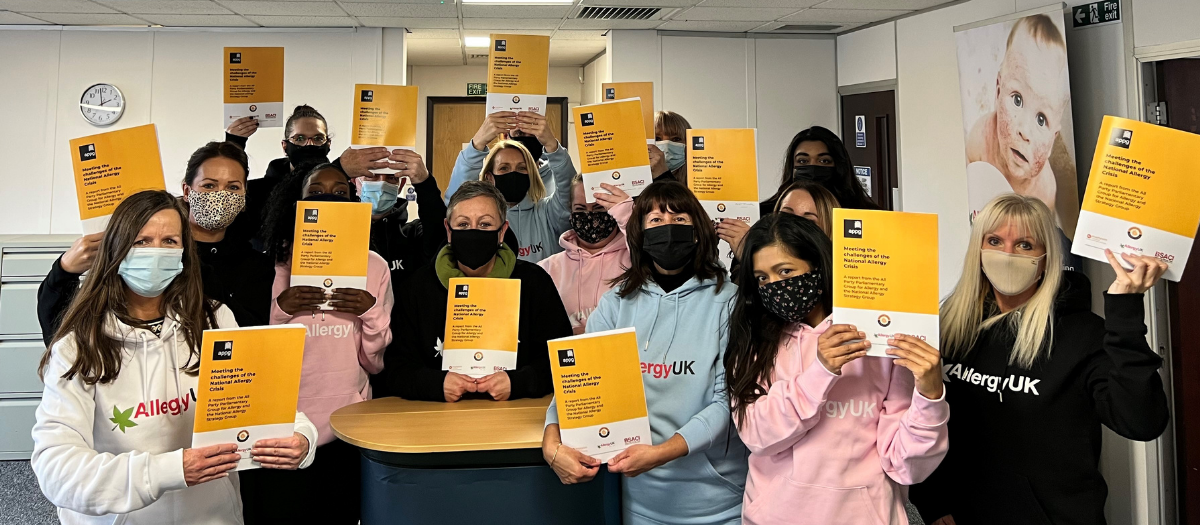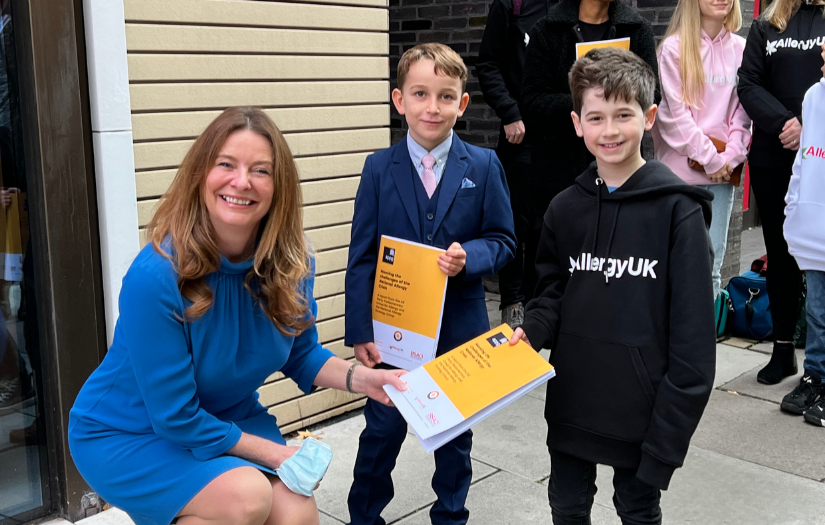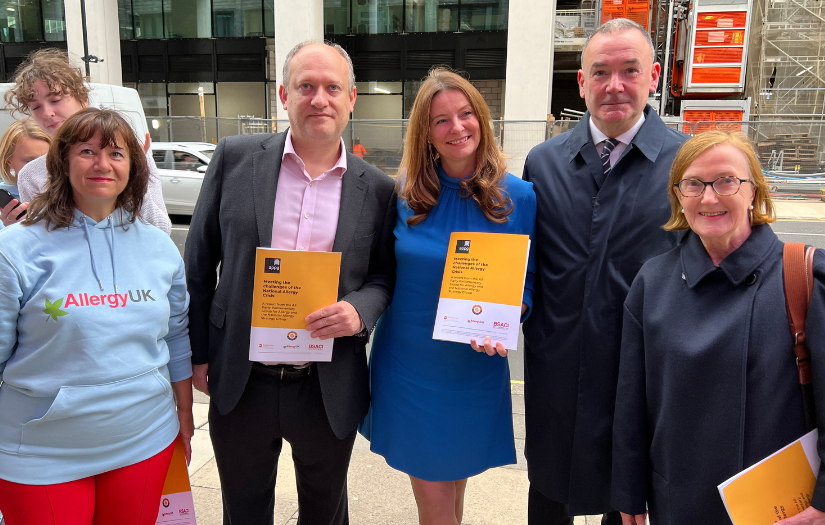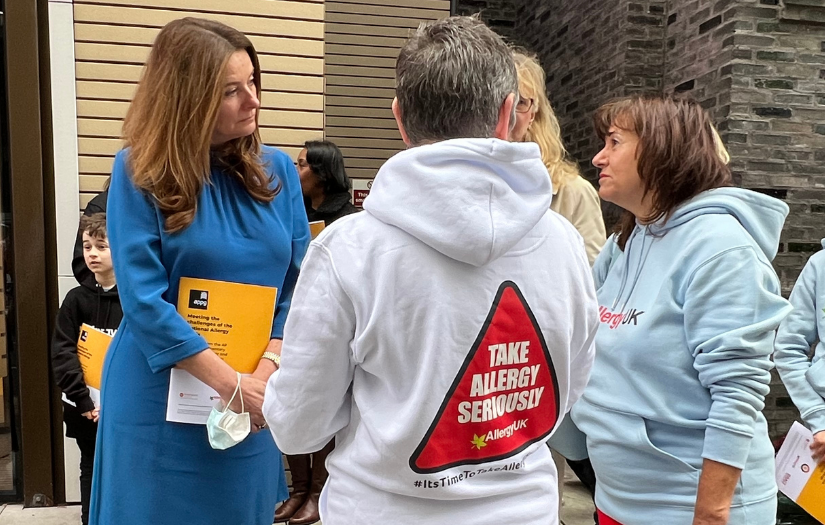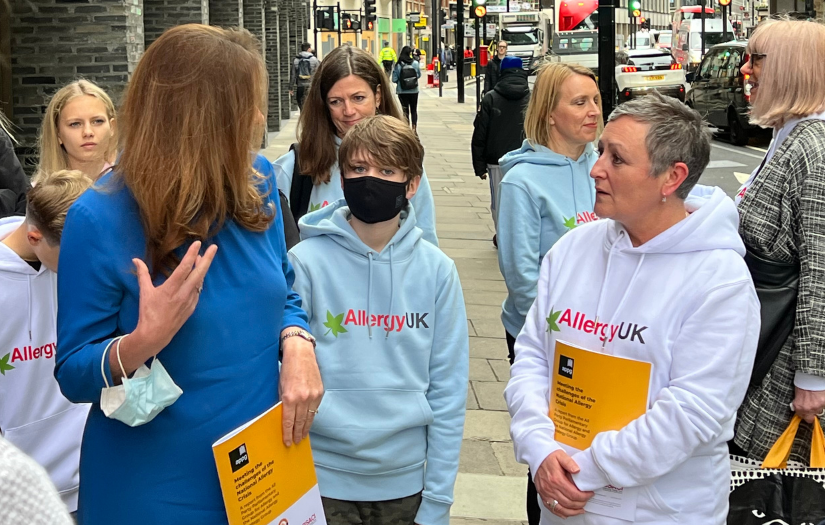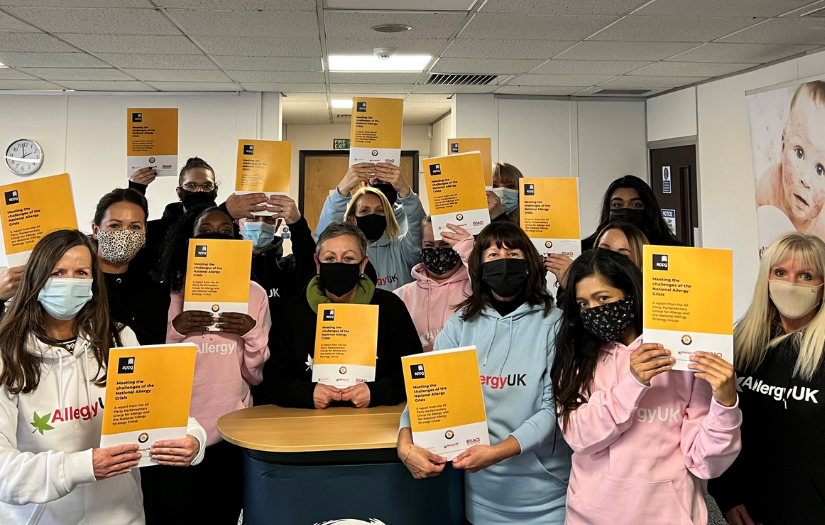Around 1 in 3 people, more than 20 million in the UK, have an allergy related disorder. A significant amount of allergic disease is severe or complex so that one patient can suffer a number of allergies. Fatal and near fatal reactions occur to foods, drugs and insect stings and these have been increasing over recent years with hospital admissions for anaphylaxis rising by 615% in the 20 years to 2012. Despite this, allergy is poorly managed across the NHS, mainly because of lack of training and expertise. The key issues are the very small number of consultants in adult and paediatric allergy and the fact that most GPs receive little training in allergy.
This new report makes the following four key recommendations for action
- A National Plan for allergy
The Report calls for allergy to be made a priority, with investment in a National Plan led by a designated Department of Health Civil Servant or NHS lead with sufficient authority to implement the changes that are needed to address the crisis. It also suggests the bringing together of medical professionals and patient support organisations to work together to develop the strategy and help steer the work required to improve allergy services.
- Specialist Care
The specialist workforce should be expanded as a priority with training programmes prioritising allergy, so that specialists of the future are appropriately trained and can safely deliver care.
- Primary Care
Around 8% of GP consultations are related to allergy. The Report asks that all GPs and health care professionals in primary care have an improved knowledge of allergic disease with allergy included in the curriculum and exit examinations, with improved allergy education for the already qualified GPs. The Report also suggests the appointment of a health visitor and/or a practice nurse with sufficient training to be responsible for allergy in each practice.
- Commissioning
Local commissioners must understand the allergy needs of their population; and it is not enough to assume that other specialties can deliver specialist allergy care. The Report asks that Commissioners should ensure access to adult and pediatric allergy consultants and treatment pathways for allergy.
Every day we hear from members of our community about the challenges they face in accessing the treatment and care they need. Our charity helps and supports thousands of people who turn to us for help and support and we are there for them. But it really is time that our healthcare services responded to what we have termed ‘The National Allergy Crisis’. The inequity in the quality and level of treatment for people living with allergy has gone on for far too long, given the numbers of people who live with allergic conditions. This must be addressed as a priority and we hope that this Report will bring about fundamental change. Carla Jones, CEO of Allergy UK
Hosting the event, Jon Cruddas MP, chair of the All Party Parliamentary Group for Allergy said “The time has come for the Government and the NHS to give allergy the priority it deserves and to recognise the true burden it can place on those who are affected and their families and wider communities. This Report looks at the solutions to the problems and makes sensible, achievable recommendations for change. We look forward to seeing them implemented.”
What Allergy UK is doing to help
Over the last twenty years Allergy UK has worked tirelessly behind the scenes to identify and develop key resources that have been essential for healthcare professionals to expand and improve their knowledge and understanding of allergy. With training options being limited within the NHS setting, it is no surprise that our resources are welcomed and well received by the healthcare professionals (HCPs) who want to learn more about this often complex disease.
As well as creating Factsheets, leaflets, podcasts, educational videos and much more, we have been organising and hosting Masterclasses with healthcare professionals for two decades, these Masterclasses aim to educate and upskill HCPs on all types of allergic conditions. In 2020 we moved from location based events to digital and we have seen a huge appetite for these kind of learning materials with fantastic attendance rates. Here’s a snapshot of what we have achieved over the last 12 months:
- Over 60 Factsheets have been created and updated with trustworthy and up to date information about all types of allergic conditions
- 10 Leaflets have been distributed across the country and made available on our website
- 8 Masterclasses have been held with over 5,000 delegates attending to further their understanding of allergic disease
What we want to do next
As the leading patient charity for people living with allergy we are committed to driving the changes that are needed to improve treatment and healthcare for people living with the burden of allergic disease. For too long our community has been poorly served and we must focus on the improvements that are needed and making our voice heard through our patient advocacy.

 Helpline
Helpline